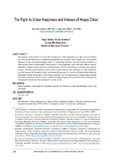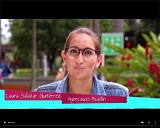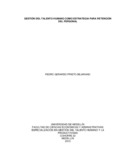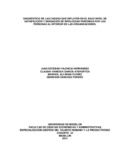Mostrar el registro sencillo del ítem
The Right to Urban Happiness and Indexes of Happy Cities
El derecho a la felicidad urbana e índices de ciudades felices;
Direito a felicidade urbana e índices das cidades felizes
| dc.contributor.author | Muñoz Cardona, Ángel Emilio | |
| dc.contributor.author | Martínez Soto, Lorena | |
| dc.contributor.author | Manrique Miranda, Mauricio | |
| dc.coverage.spatial | Lat: 06 15 00 N degrees minutes Lat: 6.2500 decimal degreesLong: 075 36 00 W degrees minutes Long: -75.6000 decimal degrees | |
| dc.date.accessioned | 2024-01-23T16:05:54Z | |
| dc.date.available | 2024-01-23T16:05:54Z | |
| dc.date.created | 2022-07-28 | |
| dc.identifier.issn | 0120-6346 | |
| dc.identifier.uri | http://hdl.handle.net/11407/8242 | |
| dc.description | The purpose of the article is to show the importance of urban happiness as a right of social welfare and what are the indicators of international measures that countries must comply with. The research question is: How to achieve happier cities? To answer the question, from the inductive method, a bibliographic search will be made of the concept of urban happiness and of the most relevant health, education and governance indicators proposed since 1979 by the different countries and research centers. Similarly, a contemporary count of the countries with the best indicators of urban happiness and their reasons will be made. Finally, some exemplifying cases of countries with better inter-subjective happiness indexes will be given. The article concludes with the importance of developing countries for achieving more social economies, capable of integrating growth in production (Economic growth) with general welfare and the enjoyment of public values. | eng |
| dc.description | El propósito de este artículo es mostrar la importancia de la felicidad urbana como derecho a la salud social y cuáles son los indicadores internacionales que los países deben cumplir respecto a ella. La pregunta de investigación fue la siguiente: ¿Cómo lograr ciudades más felices? Para responder esta pregunta, desde el método deductivo, se llevó a cabo una búsqueda bibliográfica sobre el concepto de felicidad urbana y los indicadores más relevantes relacionados con salud, educación y gobernanza que han sido propuestos desde 1979 por diferentes países y centros de investigación. De manera similar, se hizo un conteo de los países contemporáneos con los mejores indicadores de felicidad urbana y las razones detrás de ello. Finalmente, se mostrarán algunos casos ejemplares de países con mejores índices de felicidad intersubjetivos. El artículo concluye con la importancia de obtener economías más sociales y capaces de integrar el crecimiento de la producción (crecimiento económico) en los países desarrollados en conjunto con bienestar general y el disfrute de los valores públicos. | spa |
| dc.description | O objetivo deste artigo é mostrar a importância da felicidade urbana como direito à saúde social e quais são os indicadores internacionais que os países deve cumprir com respeito a mesma. A questão de pesquisa foi a seguinte: Como fazer cidades mais felizes? Para responder essa pergunta, a partir do método dedutivo, foi realizada uma pesquisa bibliográfica sobre o conceito felicidade urbana e os indicadores mais importantes relacionados com saúde, educação e governo que foram propostos desde 1979 por diferentes países e centro de pesquisa. De maneira semelhante, se fez uma contagem dos países contemporâneos com os melhores indicadores de felicidade urbana y as razões por trás deles. Finalmente, serão mostrados alguns casos de países que são exemplos com os melhores índices de felicidade intersubjetiva. O artigo conclui com a importância de obter economias mais sociais e capazes de integrar o crescimento da produção (crescimento econômico) nos países desenvolvidos em conjunto com o bem-estar geral e o disfrute dos valores públicos. | por |
| dc.format | ||
| dc.format.extent | p. 258-281 | |
| dc.format.medium | Electrónico | |
| dc.format.mimetype | application/pdf | |
| dc.language.iso | eng | |
| dc.publisher | Universidad de Medellín | |
| dc.relation.ispartofseries | Semestre Económico; Vol. 24 No. 57 (2021) | |
| dc.relation.haspart | Semestre Económico; Vol. 24 Núm. 57 julio-diciembre 2021 | |
| dc.relation.uri | https://revistas.udem.edu.co/index.php/economico/article/view/3693 | |
| dc.rights.uri | http://creativecommons.org/licenses/by-nc-nd/4.0 | * |
| dc.source | Semestre Económico; Vol. 24 No. 57 (2021): (julio-diciembre); 258-281 | |
| dc.subject | Urban happiness | eng |
| dc.subject | Intersubjective happiness | eng |
| dc.subject | General well-being | eng |
| dc.subject | Economic development | eng |
| dc.subject | Social and Economic | eng |
| dc.subject | Felicidad urbana | spa |
| dc.subject | Felicidad intersubjetiva | spa |
| dc.subject | Bienestar general | spa |
| dc.subject | Desarrollo económico | spa |
| dc.subject | Solidaridad | spa |
| dc.subject | Felicidade urbana | por |
| dc.subject | Felicidade intersubjetiva | por |
| dc.subject | Bem-estar geral | por |
| dc.subject | Desenvolvimento econômico | por |
| dc.subject | Solidariedade | por |
| dc.title | The Right to Urban Happiness and Indexes of Happy Cities | eng |
| dc.title | El derecho a la felicidad urbana e índices de ciudades felices | spa |
| dc.title | Direito a felicidade urbana e índices das cidades felizes | por |
| dc.type | article | |
| dc.identifier.doi | https://doi.org/10.22395/seec.v24n57a13 | |
| dc.relation.citationvolume | 24 | |
| dc.relation.citationissue | 57 | |
| dc.relation.citationstartpage | 258 | |
| dc.relation.citationendpage | 281 | |
| dc.audience | Comunidad Universidad de Medellín | |
| dc.publisher.faculty | Facultad de Ciencias Económicas y Administrativas | |
| dc.publisher.place | Medellín | |
| dc.relation.references | Aristotle. (2018). Nicomachean Ethics. Alianza Editores. | |
| dc.relation.references | Aristotle. (2004). Politics. Editorial Porrua. | |
| dc.relation.references | Bauman, Z. (2003). Liquid modernity. Fondo de Cultura Económica. | |
| dc.relation.references | Bentham, J. and Mill, J. S. (2003). The classical utilitarian’s. United States of America. Hackett Publishing Company Inc. | |
| dc.relation.references | Campbell, J. L. (2007). Why should corporations behave in socially responsible ways? An institutional theory of corporate social responsibility. Academy of Management, 32 (3), 946-967. | |
| dc.relation.references | DANE (2016). First Happiness Diagnosis for Colombia. Presentation by DNP Director Simón Gaviria Muñoz. Bogotá, Colombia. | |
| dc.relation.references | Alcaldía de Medellín (2016). Development Plan for the Municipality of Medellín: Medellín has you 2016-2019. Medellín City Hall: Municipal Planning Secretariat. Integral Happiness Index for Medellín IFI. | |
| dc.relation.references | Díaz, N. (2015). Creating shared value: a strategy for sustainability and business development. Review Cultura Latinoamericana, 22(2), 207-230. | |
| dc.relation.references | Díaz, S., Fargione, F., Chapin, F. and Tilman, D. (2006). Biodiversity Loss Threatens Human Well-being. Plos Biol, 4 (8), 1300-1305. | |
| dc.relation.references | Dussel, E. (1998). Ethics of liberation. In the age of globalization and exclusion. Trotta. | |
| dc.relation.references | Epicurus. (1995). On happiness. Grupo Editorial Norma. | |
| dc.relation.references | Gehl, J. (2010). Cities for People. Island Press. | |
| dc.relation.references | Harari, Y. (2015). From animals to gods. Brief history of humanity. Debate. | |
| dc.relation.references | Harari, Y. (2018). Homo Deus. Brief history of tomorrow. Debate. | |
| dc.relation.references | Hernandez, R. (2012). A new model of local development. Zafra. | |
| dc.relation.references | Huxley, A. (2006). A Breve New world. Porrua. | |
| dc.relation.references | ICI. (2011). International competitiveness index. Beyond the Bricks. Mexico: IMCO Board of Directors and Professional Staff. | |
| dc.relation.references | Kanerva, M. (February 18, 2018). Finland’s Basic income may boost motivation to accept work. The Guardian. | |
| dc.relation.references | Law 1583. (2012). Through which UN Resolution A/RES/65/309 entitled “Happiness: towards a holistic approach to development. Bogotá: Congress of the Republic of Colombia. | |
| dc.relation.references | Lora, E., Powell, V. P., and S. P. (2010). “The Quality of Life in Latin American Cities: Markets and Perceptions”. Inter-American Development Bank and Word Bank | |
| dc.relation.references | Marshall, A. (1920). Principles of Economics. Mc-Millan. | |
| dc.relation.references | Martínez, R. and Soto, E. (2012). The Washington Consensus: The establishment of neoliberal policies in Latin America. Mexico: Política y Cultura, Review Autonomous University of Mexico, 37, 35-64. | |
| dc.relation.references | Maslow, A. H. (2008). The creative personality. Kairos. | |
| dc.relation.references | Max, N., Elizalde, A.; and Hopenhayn, M. (1994). Development on a human scale: applications and some reflections. Icaria. | |
| dc.relation.references | Mill, J.S. (1834). The Proposed Reform of the Poor Law. Amendment. | |
| dc.relation.references | Mill, J.S. (1986). Autobiography. Alianza Editorial. | |
| dc.relation.references | Muñoz, Á.E. (2017). Ethics of Citizen Responsibility. Superior School Public Administration. | |
| dc.relation.references | Muñoz, Á. E. (2018). Social happiness: a duty to intersubjective happiness in the Colombian Chocó. Sincelejo-Sucre, Colombia. Busqueda Magazine, 5 (20), 88-108. | |
| dc.relation.references | Muñoz, Á.E. (2019). Discovering the economy: How to achieve growth and welfare in local economies? Superior School of Public Administration. | |
| dc.relation.references | Muñoz, Á. E. (2019a). Urban happiness. Metropolitan area of Valle de Aburra. Medellín: En-Contexto Magazine, Research magazine on Administration, Accounting, Economy and Society, 7(11), 113-147. | |
| dc.relation.references | Muñoz, Á. E. (2019b). Urban happiness in the Coffee Triangle. Journal of Anthropology and Sociology: Virajes, 21 (1), 197-228. | |
| dc.relation.references | Muñoz, A. E. (2019c). The metropolitan area of Aburra Valley and the provinces. Challenges of political and social union. Bucaramanga: Political Reflection, 21 (41), 175-189. | |
| dc.relation.references | Muñoz, A. E. and Quintero, H. (2020). The utopias of general welfare. From Thomas More’s idea of the city to Yuval Harari. Bucaramanga: Political Reflection, 22 (44), 135-145. | |
| dc.relation.references | Muñoz, Á. E. and Martínez, L. (2020). Social entrepreneurship and Urban Happiness. SUMMA Magazine, 2 (1), 127-169. | |
| dc.relation.references | Oviedo Sotelo, D. (2016,). Consumerism and the environment: towards 7R and eco-peace. Asuncion, Bolivia: UCSA’s Scientific Journal, 3 (2), 78-87. | |
| dc.relation.references | Oxley, M. (February 17, 2018) “The good things happening in the world”. The Guardian. Pigou, Arthur. (1946). The welfare economy. Aguilar. | |
| dc.relation.references | Polanyi, Karl. (1947). Primitive, archaic and modern economy. Turin. | |
| dc.relation.references | Resolution. (A / RES / 65/309). United Nations. General Assembly. General District August 25, 2011. Sixty-fifth session: Agenda item 13. https://www.un.org/en/ga/search/view_doc.asp?symbol=A/RES/65/309&Lang=S | |
| dc.relation.references | Resolution. (A / RES / 66/281). United Nations. General Assembly. General District July 12, 2012. Sixty-sixth session: Agenda item 14. https://undocs.org/pdf?symbol=es/A/RES/66/281 | |
| dc.relation.references | Rey, G. (July 25, 2015). Happiness can be measured. Periódico Portafolio. | |
| dc.relation.references | Sen, Amartya. (1997). “Human capital and human capacity”. Bogotá: Economy Notebooks, National | |
| dc.relation.references | University. Taken from “Human capital and human capacity”. World Bank: World Development. | |
| dc.relation.references | Smith, Adam. (1997). Research on the nature and causes of the Wealth of Nations. Fondo de la Cultura Económica. | |
| dc.relation.references | Smith, Adam. (1997a). Theory of Moral Senses. Alianza Editorial. | |
| dc.relation.references | Smith, Adam. (1984). The Theory of Moral Sentiments. Oxford. | |
| dc.relation.references | Stiglitz, J. (April 14, 2014). The city and the inequalities. World Urban Forum. | |
| dc.relation.references | Stiglitz, J. (2002). The public sector economy. Antoni Bosch. | |
| dc.relation.references | Stiglitz, J., Sen A., Fitoussi, J. (2015). Report of the Commission on the Measurement of Economic Development and Social Progress. CMPEPS. | |
| dc.rights.creativecommons | Attribution-NonCommercial-NoDerivatives 4.0 International | * |
| dc.identifier.eissn | 2248-4345 | |
| dc.type.coar | http://purl.org/coar/resource_type/c_6501 | |
| dc.type.version | info:eu-repo/semantics/publishedVersion | |
| dc.type.local | Artículo científico | |
| dc.type.driver | info:eu-repo/semantics/article | |
| dc.identifier.reponame | reponame:Repositorio Institucional Universidad de Medellín | |
| dc.identifier.repourl | repourl:https://repository.udem.edu.co/ | |
| dc.identifier.instname | instname:Universidad de Medellín |





